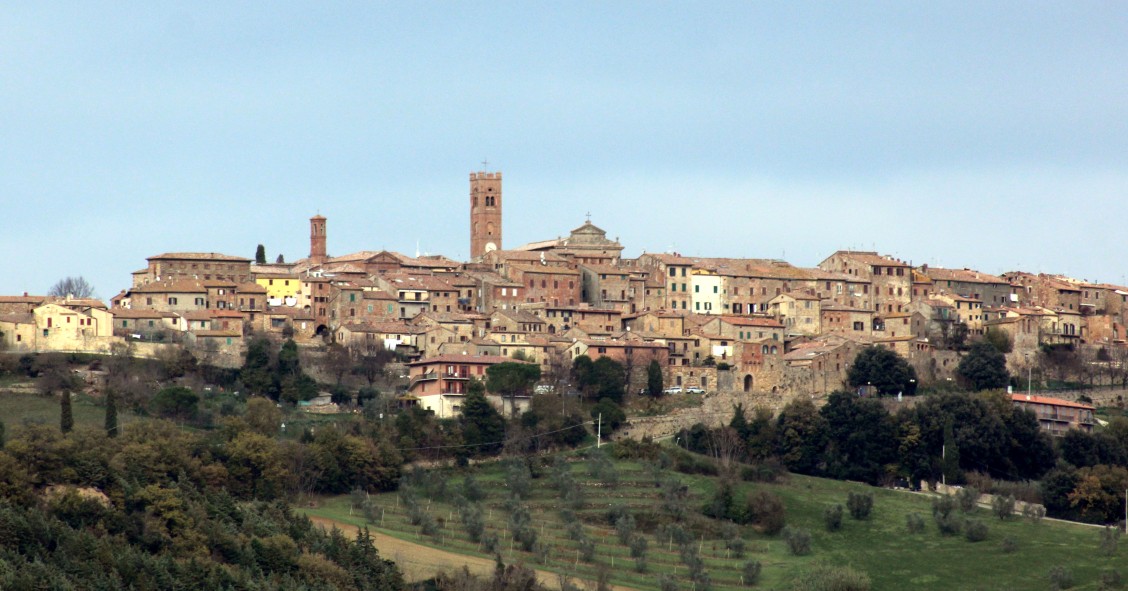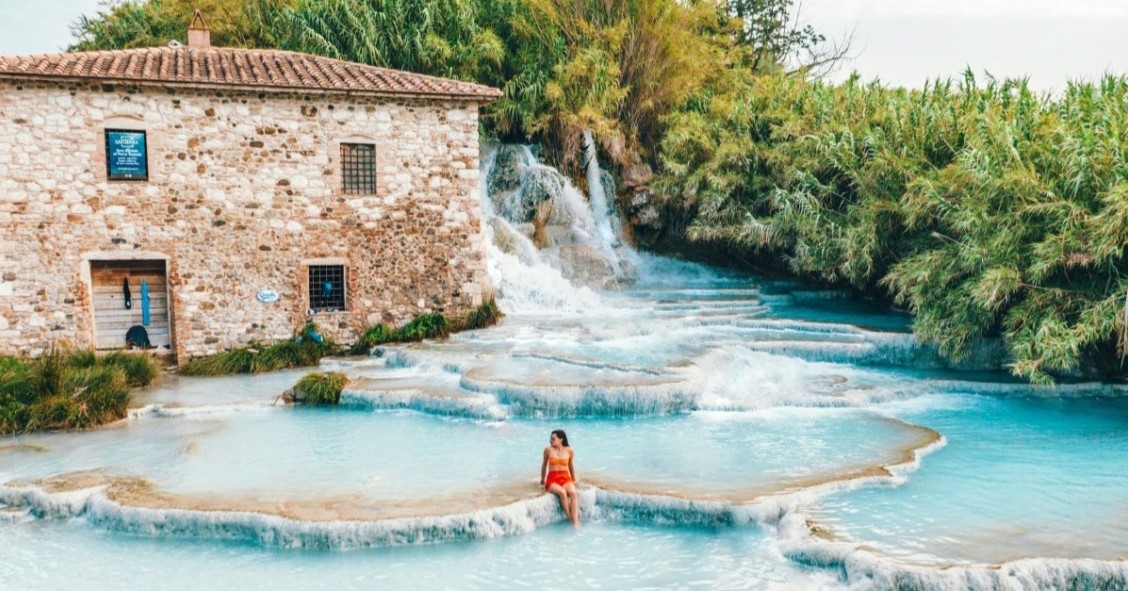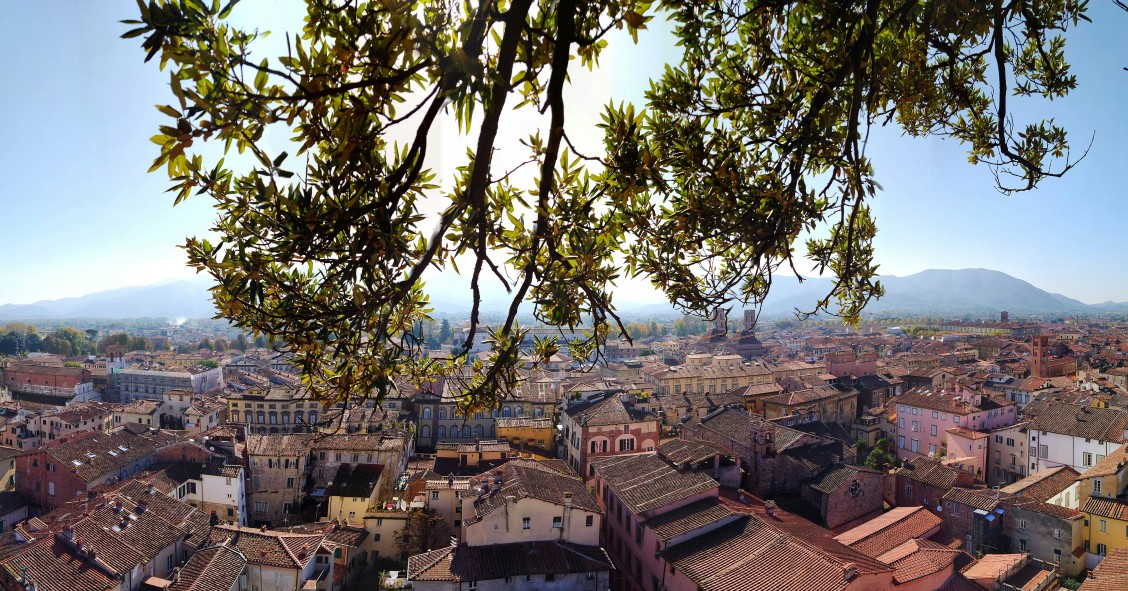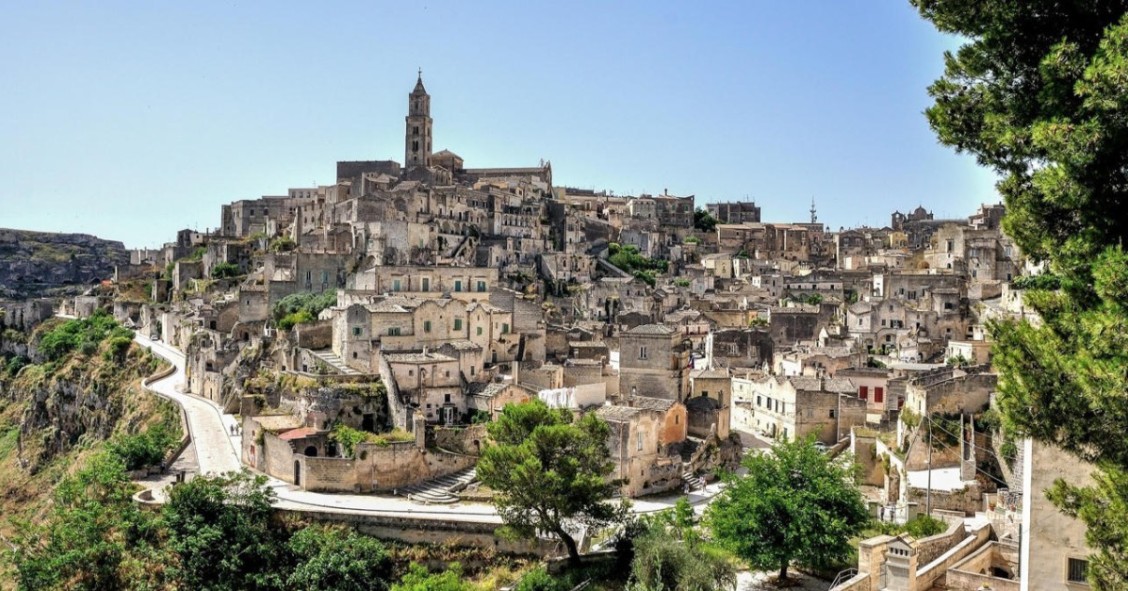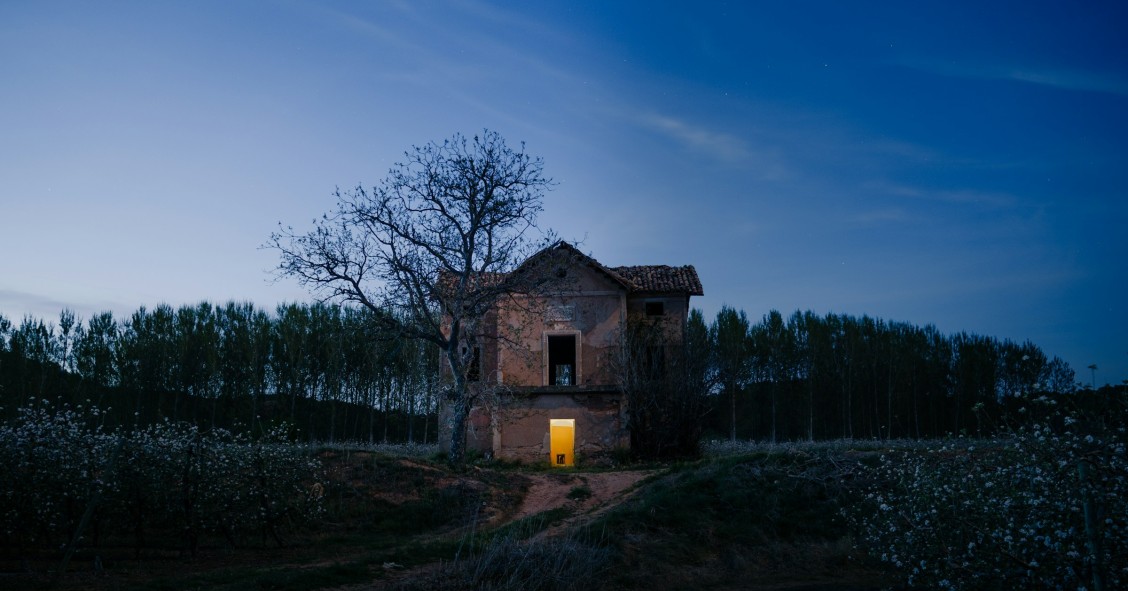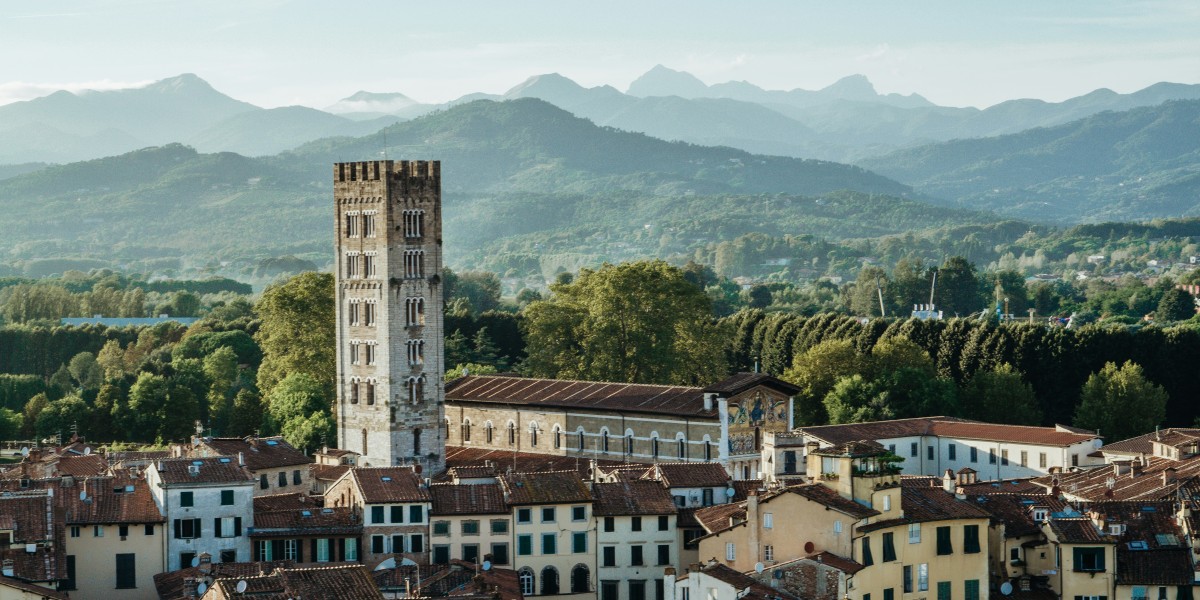
If you’re thinking about living in Lucca, this small Tuscan city delivers a big daily-life dividend. Its intact Renaissance walls form a leafy ring for walking or cycling, the lanes inside are calm and flat, and cafés cluster around Piazza dell’Anfiteatro and San Michele in Foro. Lucca sits between Pisa and Florence, so day trips and commutes are easy by train.
Is Lucca a good place to live?
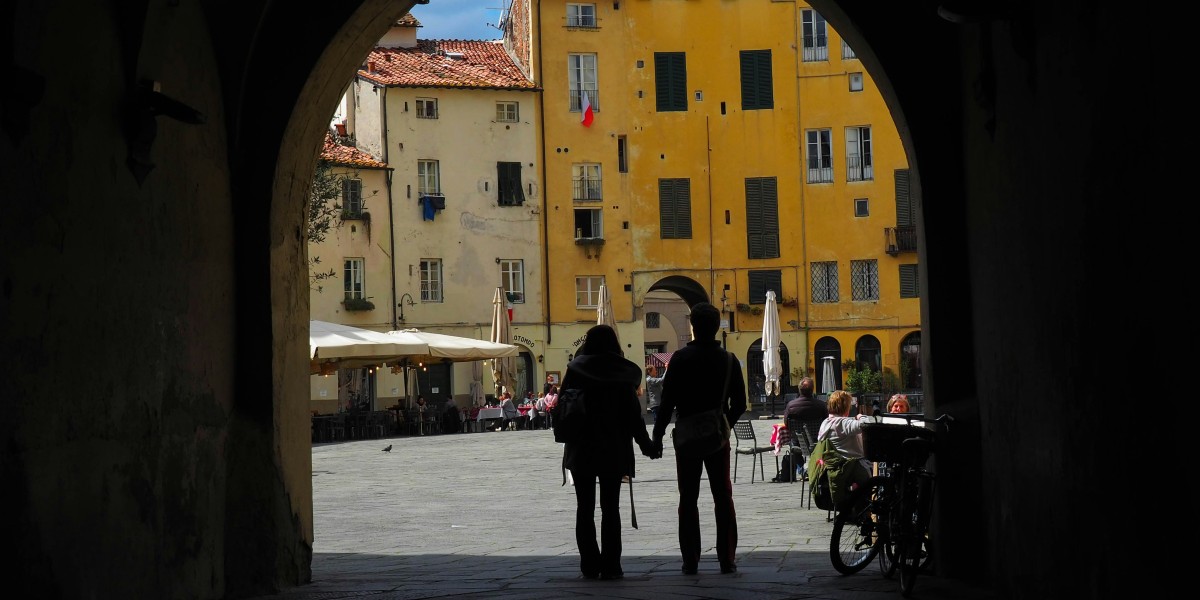
If you like a slower rhythm without giving up good connections, Lucca is a great city to live in, and arguably one of the best places to call home in Tuscany. The historic centre is walkable, bike-friendly and safe, and the town beyond the walls gives you bigger homes and easier parking. Summer is sunny and social, spring and autumn are glorious for the walls and the Serchio riverside, and winter is mild by northern European standards.
Pros and cons of living in Lucca
For balance, here are the pros and cons of living in Lucca from an expat perspective.
Some of the pros of life in Lucca include:
- Walkable daily life inside the walls and flat terrain for cycling the ramparts.
- A lively calendar of cultural events for a small city
- Lower sale and rental prices than Florence on average, and often under parts of Pisa, with direct regional trains to both and to Viareggio on the coast.
A few cons to keep in mind:
- Seasonal crowding in July and during Lucca Comics & Games. The centre can feel busy, and some short-stay prices spike.
- A narrower job market for niche professions. Many roles are in services, culture, education, hospitality, and the paper/packaging industry in nearby Capannori.
Cost of Living in Lucca
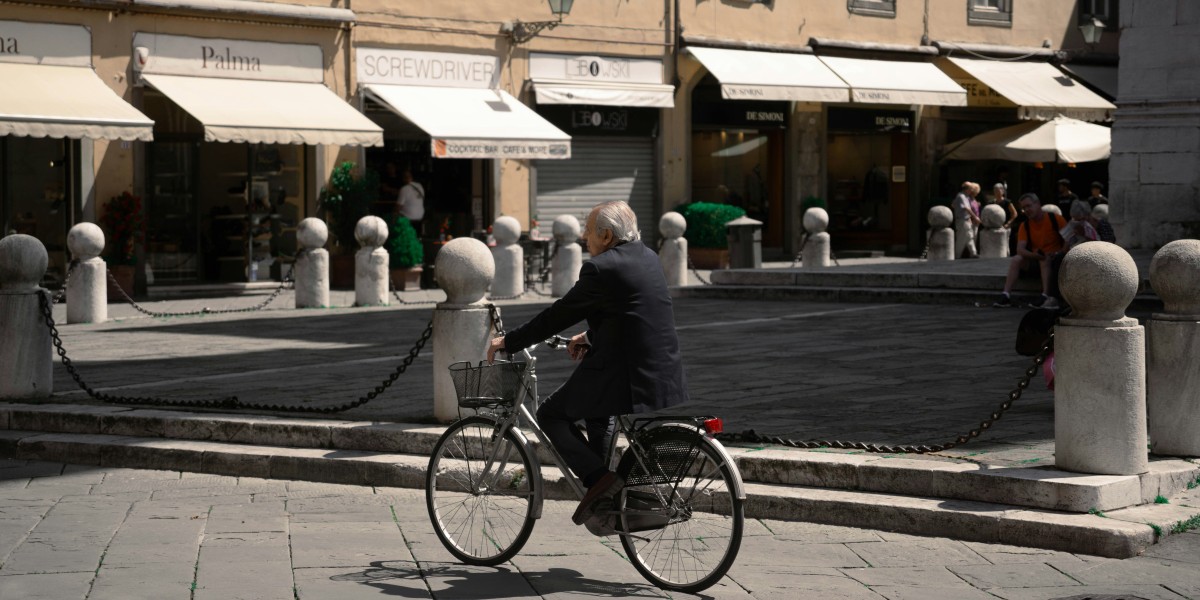
Day-to-day prices in Lucca are fairly reasonable. According to Numbeo, a cheap main course at an inexpensive restaurant comes in around €15, while a meal for two at a mid-range spot is about €65. Expect roughly €4 for a beer out and €1.55 for a cappuccino or coffee at a café. Typical monthly extras include about €60 for a gym membership and roughly €210 per month for basic utilities for an 85 m² apartment.
As of September 2025, property prices in Lucca averaged about €2,371 per m², and rent prices averaged €11.3 per m², so an 80 m² apartment would be around €904 per month. Compared with bigger Tuscan hubs, housing in Lucca tends to be lower than in Florence, and broadly similar to or slightly under Pisa, while everyday dining and coffee prices are comparable across all three.
Best place to live in Lucca
Start by deciding inside vs outside the walls. Inside is beautiful and compact, with low-emissions restrictions and historic buildings that may lack lifts. Outside, you’ll find larger apartments, easier resident parking, and better value.
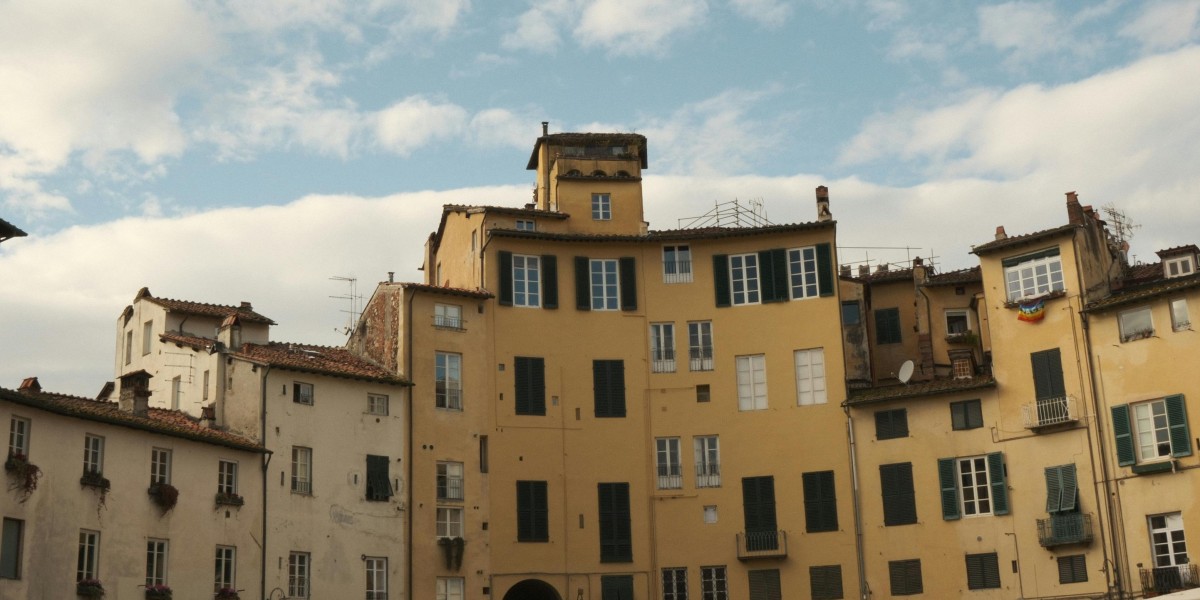
Centro Storico (inside the walls)
Doorstep culture, cafés and markets, and car-light streets feature in Lucca's most expensive neighbourhood for buying property. It suits walkers, culture lovers and second-home buyers. Cosy lanes around Piazza dell’Anfiteatro, views from Torre Guinigi, and shops along Via Fillungo.
San Concordio (south of the walls)
Effortless rail access for commuters and a short walk or cycle into the centre. A practical residential grid near Lucca station with everyday shops and cafés. Architecture skews mid-century, and streets around the station are busy at peak times.
Sant’Anna (west of the walls)
You'll get pace, services and straightforward access to the A11 for Pisa, Florence and the coast. It's family-friendly with schools, supermarkets and parks; modern amenities are more common here. Although it's less postcard-pretty than the centre, traffic can build near main arteries.
San Marco and Monte San Quirico (north/north-west)
Quieter residential pockets near the Serchio and green spaces, yet a quick cycle into town. You'll find leafy streets, some period villas and larger homes, with a relaxed feel. Check bus frequencies if you don’t cycle, and be aware that streets can be narrow for on-street parking.
Arancio and San Filippo (east, near Ospedale San Luca)
Handy neighbourhood for healthcare workers and families, with newer housing stock and good value. Practical day-to-day living, bus routes toward the centre, and quick access to the ring road. It's more functional than scenic.
Living in Lucca as a foreigner
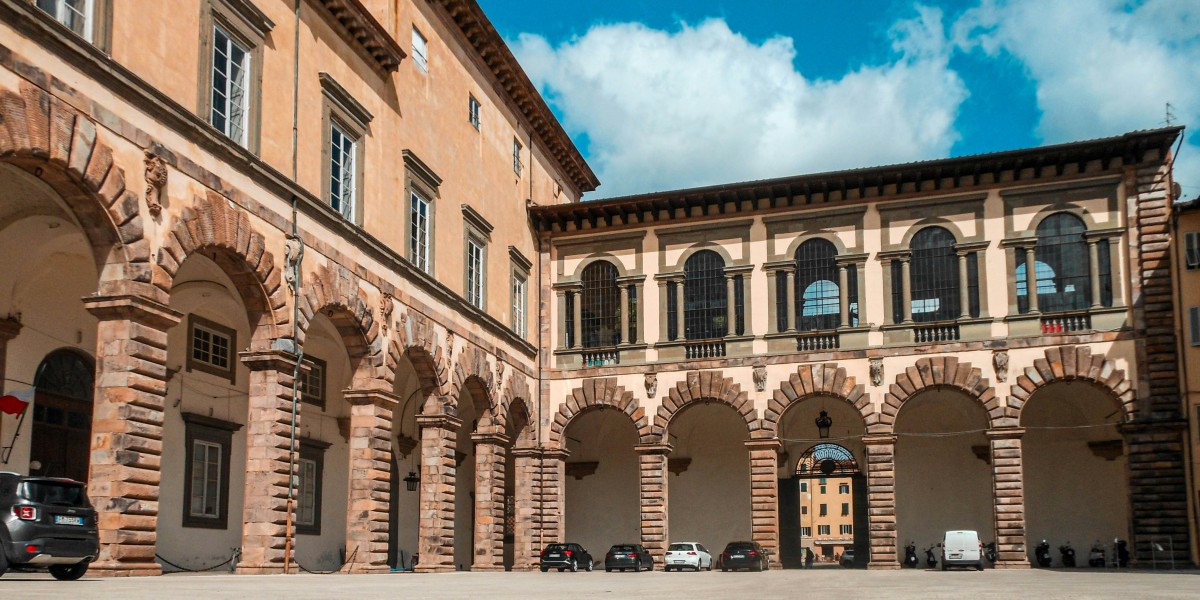
Visas and routes to stay
Italy’s main residency paths include the Elective Residence Visa (for those with passive income), standard employment permits, family reunification and study visas. Italy’s digital nomad visa is now live for certain remote workers; add an explainer link with anchor “Italy’s digital nomad visa explained” in-line.
If you’re planning a longer stay in Lucca, the main residency routes are the Elective Residence Visa, employment permits, family reunification, or a study visa if you’re enrolling locally. Italy’s digital nomad visa is now available for certain remote workers, too.
Living in Lucca as an American
American tourists can drive for a short term, but once a resident, you have 12 months before you must pass the Italian theory and practical tests.
Open a local bank account in Lucca once you have your codice fiscale, and remember you’ll keep filing US taxes under FATCA even if you become Italian tax-resident.
Healthcare is straightforward: after registering residency, sign up with the SSN through ASL Toscana Nord Ovest and choose a family doctor. The main hospital is Ospedale San Luca on the east side of town.
Integration and community
To settle quickly, take classes at Lucca Italian School (intensive or evening options), then practice over aperitivo on the walls. Local language exchanges, InterNations Tuscany meetups and Facebook groups are handy for making friends and swapping tips.
Volunteering is a great inroad—cultural associations linked to the Puccini legacy, the Lucca Summer Festival or Lucca Comics & Games often need extra hands, and neighbourhood committees run clean-up days and festas outside the walls.
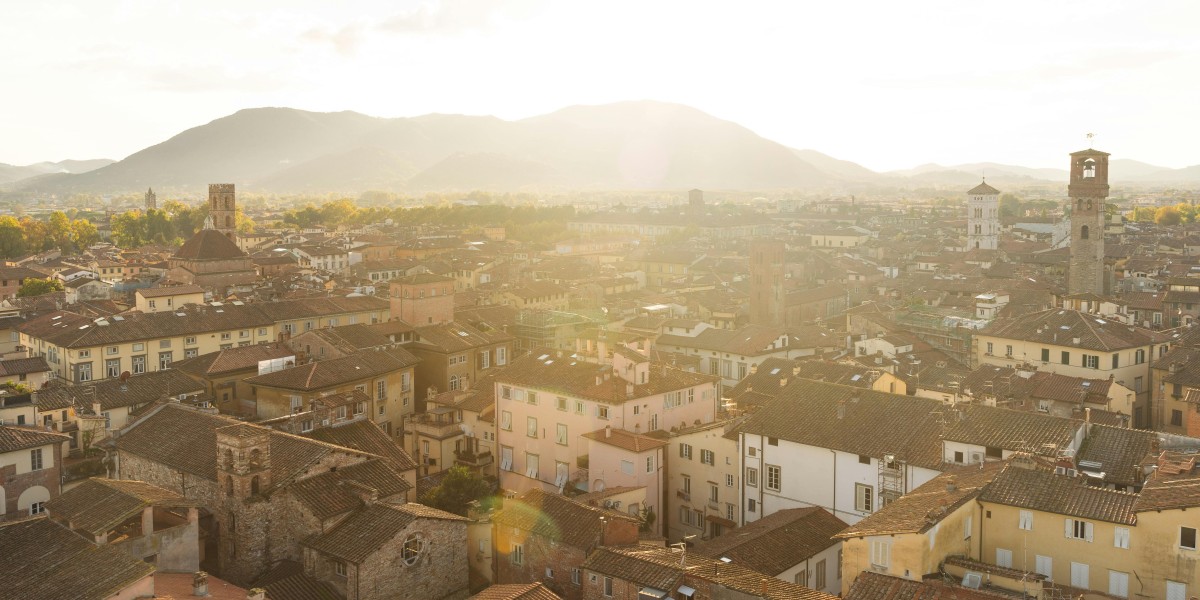
Stay in the know about living in Italy as a foreigner—get our weekly newsletter for the latest travel, legal, and lifestyle news.
For a taste of the high life, sign up for the monthly luxury market round-up.


